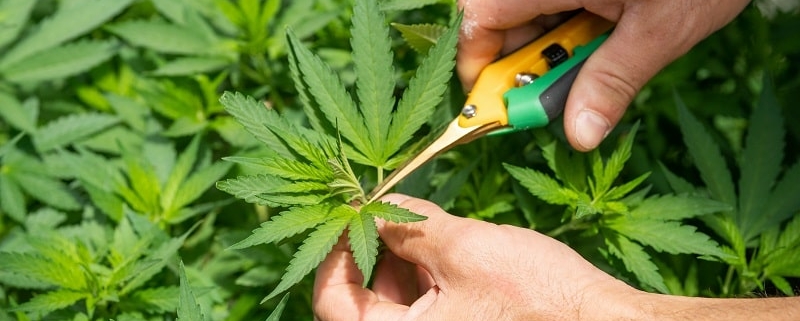What Is THCv And What Does It Do?
If you’ve been reading cannabis product labels, you have likely encountered THCV and thought to yourself, “Wait, what is THCV?” If that’s you, relax! You are neither misinformed nor unaware.
There is a good chance you’ve likely made good use of THC and its increasingly prevalent cousin CBD. And while THCV may look similar to THC and CBD, THCV is not just another string of letters; it is a cannabinoid, and a fun cannabinoid at that! It is attracting a lot of interest at the moment for its unique effects on appetite, energy, and focus.
THCV acts differently from its cousin THC; in fact, THCV has provided users with very different experiences overall.
Let’s break it down in the simplest way possible so you can actually figure out if THCV is something you want to try, why it matters, and how it’s different from what you might already be using.
What is THCv?
THCV is short for tetrahydrocannabivarin. It is a rare cannabinoid found in some cannabis strains and, like THC/CBD, is produced by the plant trichomes (the nifty little crystal-like structures found on your buds and leaves), but in most strains, it cannot be found in large concentrations.
In most cases, you will either find low quantities of THCV or you will find a product consisting specifically of THCV.
So, what’s the appeal? When comparing THC, which typically stimulates appetite (anyone ready for some munchies?), THCV is known to suppress appetite. Because of this, THCV is increasingly being popularized for appetite suppression, an increase in energy, and clarity of focus.
At present, scientists are even studying THCV’s potential ability to impact disorders related to type 2 diabetes, mental health, and neuroprotection!
How Does THCV Work?
To understand how tetrahydrocannabivarin works, it modulates (or interacts with) your endocannabinoid system (ECS), which is the biological system in your body that regulates and maintains various functions, including mood, appetite, pain relief, and sleep.
In general, THCV interacts with the same receptors as THC and CBD, but it doesn’t always act the same way.
Interaction With CB1 & CB2 Receptors
The CB1 and CB2 receptors are the receptors through which cannabinoids enter. Here’s where it gets interesting:
- At low doses, THCV will block the CB1 receptor (the receptor that makes you feel hungry after using THC), so you technically would be less hungry.
- At higher doses, it may start activating the CB1 receptor (like THC does), but in a more subtle, controlled way.
- For the CB2 receptor, which is more in charge of immune response and inflammation, THCV is also still being studied for its effects, but initial research is being published about THCV for anti-inflammatory response.
This back-and-forth responding behavior is what is so cool about THCV, and it’s sort of like THCV flips a switch, depending on the dose.
THCV vs THC and Other Cannabinoids
It’s easy to confuse THC with THCV (and they look similar at first sight), but they are cousins, not twins.
Molecular & Pharmacological Differences
THCV and THC are chemically very similar. However, it is the small but valuable changes in their molecular component that matter.
- THC is derived from THCA.
- THCV is derived from a different precursor, cannabigerovarinic acid (CBGVA).
That small contextual difference in their predecessors may change the way that they affect your system.
Psychoactive Effects Comparison
Let’s clarify things: THCV can be psychoactive, but not always like THC.
- Low Doses: It is not psychoactive, and you will not feel high.
- High Doses: It can provide a brief clarity and uplifting high, which is often described as energizing vs mellow.
If THC could be described as sinking on the couch after a long workday, THCV could be described as a mid-morning power walk with a coffee in hand.
THCV Effects and Potential Benefits
THCV is unique because it has effects that the vast majority of cannabinoids cannot deliver. Here is what people and researchers are seeing:
Appetite Control and Metabolic Health
This is really THCV’s bread and butter.
- THCV is reported by users to be an appetite suppressant because, instead of the munchies, they feel satiated, or they simply don’t crave food.
- There is also research being done on it for type 2 diabetes management. The research suggests that THCV may enhance insulin sensitivity and glucose management.
These qualities make it especially interesting for people who are monitoring their metabolic health or struggling with food-related issues.
Mental Health & Neuroprotection
Early studies suggest that THCV may have neuroprotective effects, meaning it may protect the brain from oppression or damage. This would translate to great news for people with Parkinson’s Disease or anxiety.
THCV is also being researched for its anti-psychotic effects, which may benefit the field of mental health treatments in the future.
Energy, Focus, and Motivation
THCV is typically reported to create feelings of increased energy, focus, and motivation as opposed to THC, which can create a sluggish, spaced-out feeling.
We have seen some people describe THCV as a coffee-like effect, without the jitteriness. If you enjoy consuming cannabis during the day but do not want the groggy feeling that comes with it, THCV may be your cannabinoid of choice.
Common THCV Options
Although tetrahydrocannabivarin is still not as widely accepted as other cannabinoids, there are more brands marketing THCV-specific products. Here is a list of some places where THCV products might be available:
THCV Gummies or Edibles
- THCV gummies are one of the easiest ways to try out this cannabinoid.
- They are pre-measured, which makes for a more manageable dose.
- Consumers will enjoy THCV gummies for appetite management or for a slight boost to their mornings.
- Look out for gummies that specifically have THCV listed as an ingredient; many contain THCV with other cannabinoids like CBD, causing a more noticeable experience.
THCV Vapes
- Another way to consume THCV that has a fast onset is to vape
- With vaping, you will feel the effects within minutes
- Vaping is a good option for a mid-afternoon boost or before athletic activity
- Make sure it is a lab-tested and clearly labeled product
THCV Oils or Tinctures
Oils and tinctures offer more control over your dose. A few drops under the tongue can give you a gradual effect, which is ideal if you’re new to tetrahydrocannabivarin or just want something steady throughout the day.
You can also add them to your drinks or meals, making them versatile and discreet.
THCV Flower or Pre-rolls
If you prefer smoking, THCV strains are starting to hit dispensary shelves. These are specific cannabis flowers bred to have <strong>higher THCV content.
Some popular THCV-heavy strains include:
- Durban Poison
- Pineapple Purps
- Doug’s Varin
These strains are known for their uplifting and clear-headed highs, often with less hunger or couch lock.
THCV Legal Status
The legal status of THCV can be a bit confusing. It’s not prohibited at the federal level in the U.S., but states vary in how they regulate THCV. Some states regulate THCV similarly to THC, and others don’t regulate it at all (yet).
If you are purchasing locally at a Portland dispensary, have no worries; as long as they follow Oregon marijuana laws, they will have THCV products available.
If you are not sure whether tetrahydrocannabivarin is legally available where you are, always check your local laws or contact us for assistance.
How to Choose the Right THCV Product
If you are interested in tetrahydrocannabivarin, here are some smart shopping tips:
- Check the label: Make sure it is specifically listed.
- Check lab results: Confirm actual THCV amounts are supported.
- Know your goal:
- Appetite management? Go for gummies.
- Quick energy? Vapes or strains like Durban Poison.
- Long-lasting effect? Oils and tinctures.
- Ask your budtender: In Portland dispensaries, staff can help you based on your intent.
- Start low: Tetrahydrocannabivarin doesn’t usually overwhelm, but everyone reacts differently. Start with a low dose and observe.
THCV isn’t a trendy buzzword; it is a really intriguing cannabinoid with some impressive benefits. From reducing appetite to sharpening focus and boosting energy and mental clarity, THCV opens up whole new possibilities for how cannabis can fit into your lifestyle.
Unlike THC, it also doesn’t have to dominate your entire day. More often than not, you will feel engaged, clear-headed, and in control instead of spaced out and sleepy.
If you’re interested in THCV vs THC, are looking for its real benefits, or just want to try something new, you should definitely put THCV on your radar.
Just be sure to check out trusted products (gummies, flower, tinctures, or vapes) from a licensed seller that adheres to Oregon cannabis regulations.

Ian Baker handles content marketing at Happy Leaf Portland. There are 5 years that he is deeply involved in the cannabis field. He had 3 years of experience as a Budtender and thanks to his desire to achieve more, he has a career move. Currently he works as a content manager.










